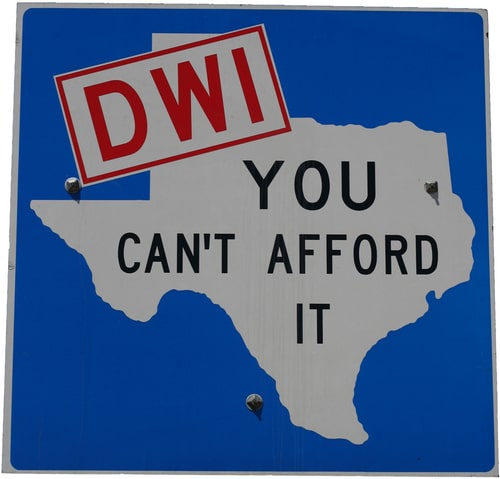817-599-7005
The Consequences of Subsequent DWI Convictions
 Repeat driving while intoxicated (DWI) offenders will likely face considerably harsher penalties than that of a first-time offender. Most first-time DWI offenders will receive a misdemeanor charge with a fine of up to $2,000 and a minimum driver’s license suspension of three months. However, even a first-time DWI offense can become a felony when specific criteria are met. Legal representation is crucial when dealing with a second, third, or subsequent DWI charge. Contact a lawyer with DWI defense experience to see what can be done.
Repeat driving while intoxicated (DWI) offenders will likely face considerably harsher penalties than that of a first-time offender. Most first-time DWI offenders will receive a misdemeanor charge with a fine of up to $2,000 and a minimum driver’s license suspension of three months. However, even a first-time DWI offense can become a felony when specific criteria are met. Legal representation is crucial when dealing with a second, third, or subsequent DWI charge. Contact a lawyer with DWI defense experience to see what can be done.
What Texas Considers a DWI Offense
Driving while intoxicated in Texas means that a driver did not have regular use of their mental or physical faculties due to the use of alcohol, drugs, or another controlled substance while operating a motor vehicle in a public place. A DWI charge can also be issued if the driver has a blood alcohol concentration (BAC) of 0.08 percent or higher. A first-time offense without aggravated factors is considered a Class B misdemeanor and requires a minimum jail term of 72 hours. If that same driver is found to have an open alcohol container in their immediate possession, the jail term is extended to a minimum of six days. A BAC of 0.15 percent or higher raises the charge from a Class B misdemeanor to a Class A misdemeanor.
The aggravated factors that can turn a first-time DWI offense into a felony include:
- DWI while there is a child passenger in the vehicle
- The DWI driver commits intoxication assault
- The DWI driver commits intoxication manslaughter
Subsequent DWI Penalties
A second DWI conviction is not considered an automatic felony. Still, the driver will face steeper fines and possible jail time of up to a year and may require the use of an ignition interlock device (IID) installed in their vehicle. DWI charges from your second conviction onward also become a permanent stain on your public record without the possibility of having them sealed in the future. To make things worse for the defendant, any DWI or DUI conviction received from another state can also be used against you in a Texas court. All enhanced DWI charges should be taken with the utmost seriousness.
A third DWI charge is treated as a third-degree felony, which carries a two to ten-year prison sentence, extended supervised release, and fines of up to $10,000. A driver’s license suspension of up to two years is likely, as is an IID installation requirement for their vehicle. The penalties only continue to get more harsh from here. Though the exact penalties may not differ, a fourth or subsequent DWI conviction will likely see the judge imparting the maximum sentence they are allowed.
Contact a Parker County, TX Criminal Defense Attorney
Subsequent DWI convictions are no laughing matter in the state of Texas. However, understand the difference between a charge and a conviction. An experienced Weatherford, TX DWI defense lawyer can help explain the differences and provide legal representation in a court of law. The office of Soraya Joslin, P.C. has ample experience defending clients facing accusations of repeat DWI offenses. Call the office at 817-599-7005 for a free consultation to begin working on your defense.



